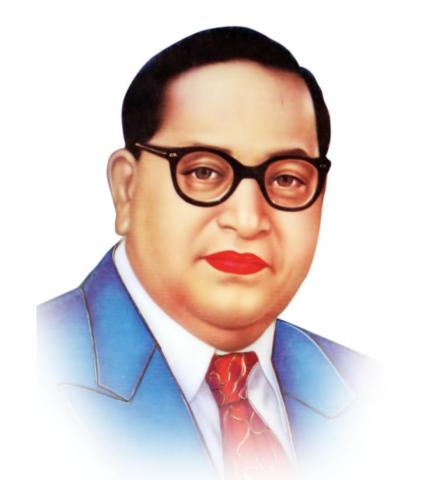
Dr. Bhimrao Ambedkar: A Beacon of Education and Equality
In India, if we have to identify one person whose work and life amplify the cause of education in the most powerful way, it's Dr. Bhimrao Ambedkar. It's a separate issue that he could not speak elaborately on how education should be, because in a very short span of his life, he was deeply engaged with other pressing issues at hand. He could not provide a roadmap on education like Mahatma Gandhi, through his idea of Nai Taleem, or like Rabindranath Tagore, who elaborated his ideas on education by founding Shantiniketan. However, the life and works of Dr. Ambedkar are perhaps the finest example which underlines the possibility of education.
None of our national heroes from the Indian national movement faced such adverse situations to grow and live as Dr. Ambedkar did. Yet, he managed to weave a constitution which guarantees a dignified life for all. Here, I bring an excerpt from his autobiography "Waiting for a Visa" to illustrate what the adversities were like:
"My five years of stay in Europe and America had completely wiped out of my mind any consciousness that I was untouchable and that an untouchable, whenever he went in India, was a problem to himself and to others. But when I came out of the station, my mind was considerably disturbed by the question: where to go? Who will take me? I felt deeply agitated. Hindu hotels called Vishis, I knew there were. They would not take me. The only way of seeking accommodation therein was by impersonation. But I was not prepared for it because I could well anticipate the dire consequences which were sure to follow if my identity was discovered, as it was sure to be. I had friends in Baroda who had come to America for study; would they welcome me if I went? I could not assure myself. They may feel embarrassed by admitting an untouchable in their household. I stood under the roof of the station for sometime thinking: where to go? What to do?"
The accounts of his life tear apart all imagined notions of a civilized society. But what is remarkable is that he never let the unpleasant experiences turn him into a radical seeking revenge. Rather, he emerged as a scholar and statesman who paved the path for a democratic, dignified life for generations to come. His contribution to uplifting the lives of women is particularly noteworthy.
I sometimes wonder why autobiographies like "Discovery of India" and "My Experiment With Truth" are easily accessible and quite well-known among school children, but it requires a person to pursue a Masters or PhD to know that even Dr. Ambedkar has a autobiography. "Waiting for a Visa," a succinct 33-page book, is a must-read and should be made compulsory in schools. Not just because it talks about the life of Dr. Ambedkar, but perhaps because it underlies the immense possibilities that education can bring to one's life.
- Log in to post comments
